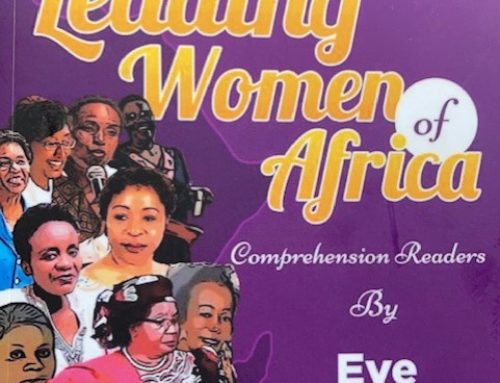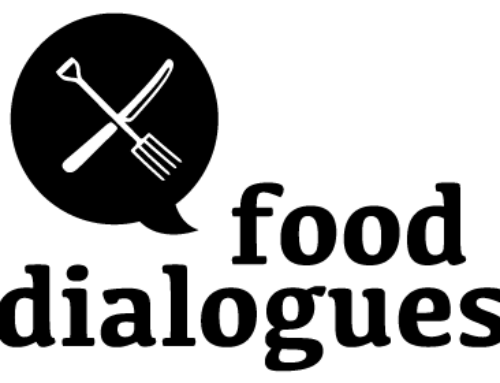Alone with a Jihadist: A biblical response to holy war [by Aaron D. Taylor]
This was the second book i have reviewed for the Speakeasy group i belong to and it took me by surprise in two main areas:
[1] the title is ‘Alone with a Jihadist’ and so i kind of figured the book would be about this guy who was interviewing this other guy who was a jihadist for the entire book. but it’s not. the author does have this intense two day interview/debate with this very outspoken jihadist Khalid [an Irish convert to Islam] but then the whole book takes place largely as a response to that [as opposed to a documentation of the event which is what i was expecting] and some of the things that Khalid said which really got Aaron thinking critically about his own faith and stance on things like politics, war and non-violence.
[2] i really enjoyed it. i don’t know why this surprised me cos i definitely thought the premise of the book looked interesting and maybe just cos the first book i reviewed was not that great but yes i really enjoyed reading this book and would recommend it for sure.
I would especially recommend it to people who think Americaland is the greatest nation on the earth and the answer to all the world’s problems and that capitalism is a picture of the kingdom of God come down on earth [as it is to heaven]. To those who freely and easily make statements like ‘soldiers fought for our right to vote’ and those who feel like violence is ever justified [for a follower of Jesus at the very least] – i think this is a book that the average American would learn a lot from.
Not saying that others should not read the book but there is definitely what i see as a fundamental message to the church here which is really straightforward and obvious [this is not some mysteriously hidden-in-scripture idea that only Aaron Taylor has discovered, more one that he couldn’t believe he had lives so long without discovering] and yet which a lot of people miss or twist to suit their ideologies or to make them feel better about their comforts.
The basic premise is that Aaron gets this opportunity to meet up with a staunch muslim jihadist for several hours in an abandoned warehouse and discuss their religious and political beliefs [he went with the hope of converting Khalid to Christianity] and leaves with his whole world and ideology thrown upside down – not no longer believing in Jesus or Christianity but seeing the way he viewed it before in a completely new light in a number of areas. the rest of the book follows his thought processes and wrestlings in the months and years after the interview and how having this different perspective thrown at him was able to shift a lot of what he had previously held on to so tightly in areas of church and politics, non-violence and the mission and message of Jesus.
One of the main conclusions Aaron comes up with is shown here:
‘I did spend a year of my life searching for something, searching for an answer to the question Khalid posed to me on that fateful day in an old-abandoned warehouse. “Tell me Aaron, how would you implement the Bible from a governmental point of view?” On this question I’ve spent the past year searching and searching and searching only to find in the end what I suspected all along. The Bible can’t be implemented from a government perspective!’
‘As much as I love Jesus, focusing on His character made my search for the perfect “Christian” government perplexing. I found that when I matched all the different philosophies of government proposed in the name of Christianity up to the image of Jesus in the gospels, I made an astounding discovery. None of them came close.’ [pg 20]
One phrase Aaron used that I really enjoyed [and I imagine it was probably coined elsewhere but this is where it jumped out at me] was the idea of ruling with a towel instead of a sword:
He is talking about Jesus being tempted in the desert and how satan invited Jesus to access power in three different ways and yet Jesus turns him down every time and concludes with this question – Could it be that the more Christians pursue political power to control other people’s behavior, the less we look like Jesus?
And then continues… ‘I realize I”m treading on sacred ground here, but the suggestion is worth considering. Jesus walked and talked like His solem agenda was to love God and serve people. Instead of ruling with a sword or a gavel, He ruled with a towel. Instead of exercising power over people, He exercised power under people. Rather than taking on the role of a master, He took on the role of a servant. Jesus washed His disciple’s feet and taufght them to do the same [John 13.1-17] Jesus displayed zero concern for land or buildings. He wasn’t interested in overthrowing the Romans, not did He have any interest in keeping Jerusalem in the hands of the Jews, as many of today’s “Christian” political activists do. His sole concern was loving people. I wonder what it would look like today if Christians refused to pursue any other agenda but to imitate Jesus? What if our sole earthly agenda was to love people, serve people, and meet their needs?’ [pg 27]
and so it continues – i have a bunch of folded page corners which is how i mark a book i own with something that jumped out at me and was worth sharing but i realise this is already getting fairly long and so i will maybe close with one which has a powerful last line. just to say that the rest of the book feels like a really fair and open-minded questioning and discussing of aspects like how involved christians get in politics, how the kingdom we are meant to be a part of and the ruling empire are two very different things and how we can figure out as members of the kingdom how we live in an empire run state, and what should christians response be to violence and involvement be in wars and so on.
To close of the chapter titled ‘The absent Revolutionary’ which starts with a statement of ‘Here’s my problem. As an American, I’m proud of our revolutionary ancestors, but as a Christian, I can’t find a single basis for violent revolution in the New Testament’
and finishes with, ‘In Habu Abu Assad’s frighteningly realistic 2006 film “Paradise Now,” two young Palestinian men consider blowing themselves up as suicide bombers because they would rather kill than continue living under the thumb of – ironically – Israeli soldiers that treat them as inferiors. How tragic is it that men such as these are unaware that a Kingdom exists in which the poor and the powerless are the exalted ones! [James 1.9-10] This is why the New Testament forbids violent revolution. Violent revolution simply isn’t revolutionary enough.‘
i love that last line and it sums up the creativity and imagination which Aaron calls Christ followers to if we are indeed going to live out the words and the works of Jesus. If you can get hold of a copy, then ‘Alone with a Jihadist’ is a book worth taking a good read of and considering its contents seriously.






If you read the prophets Jesus firsts comes as a humble servant… however his second coming is all about his kingly role and governance, he comes riding on a white horse and out of his mouth comes the sword! God’s commandments and decrees will be what is used to govern and judge during His 1000 year reign on earth. and if you read about how God’s wrath is poured out in the last days… you will be suprised! A war is coming, but we are not the ones that will be fighting. Read the book of Revelation.
yeah, i have thankx. and i think it important to note what you say that we won’t be doing the fighting… revelations needs to be read in the form of writing that it is [in other words it was not meant to be taken literally – it is prophetic and symbolic language so representing things but not necessarily the actual images and actions described themselves] – good to know that God is on this and His kingdom will prevail.
I love your book reviews. i know violence only leads to more violence. I keep asking though how do I defend myself if I am oppressed? That is after all a God given right. In Islam justice come before goodness. We believe where there is injustice there can be no goodness.
That is a good question. I think the post I shared today touches on that looking at Jesus’ response to injustice but also the rest of that book speaks more about it…
I read todays post as well. But have to go over it again. My logical brain understands the four points you mentioned. My heart struggles